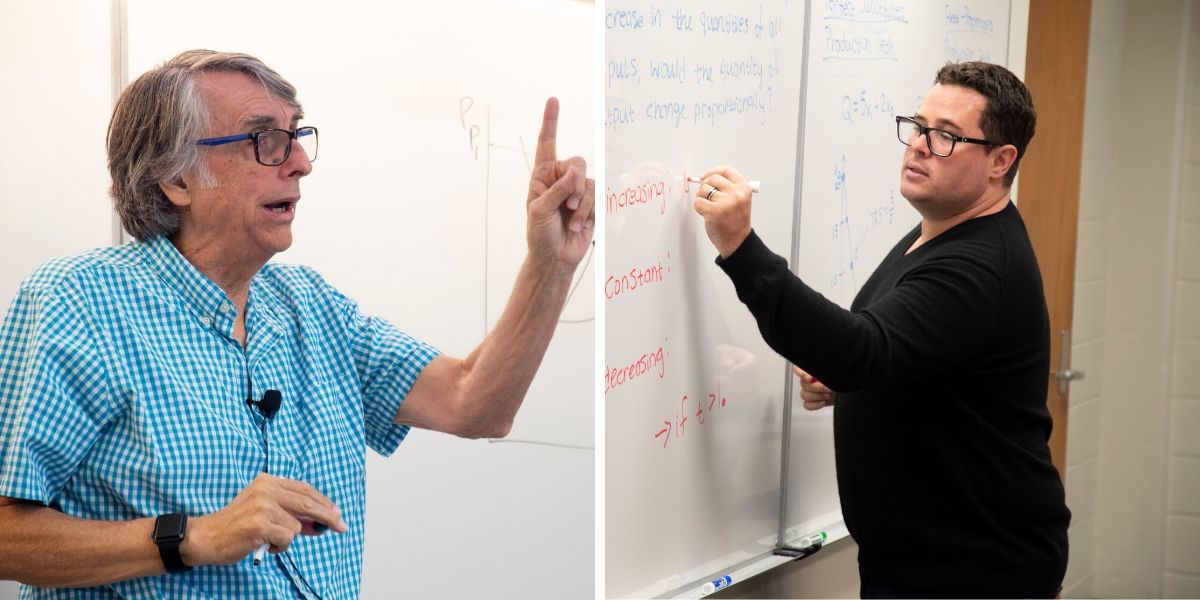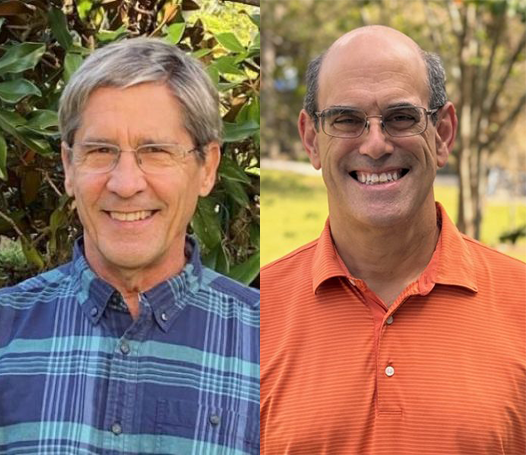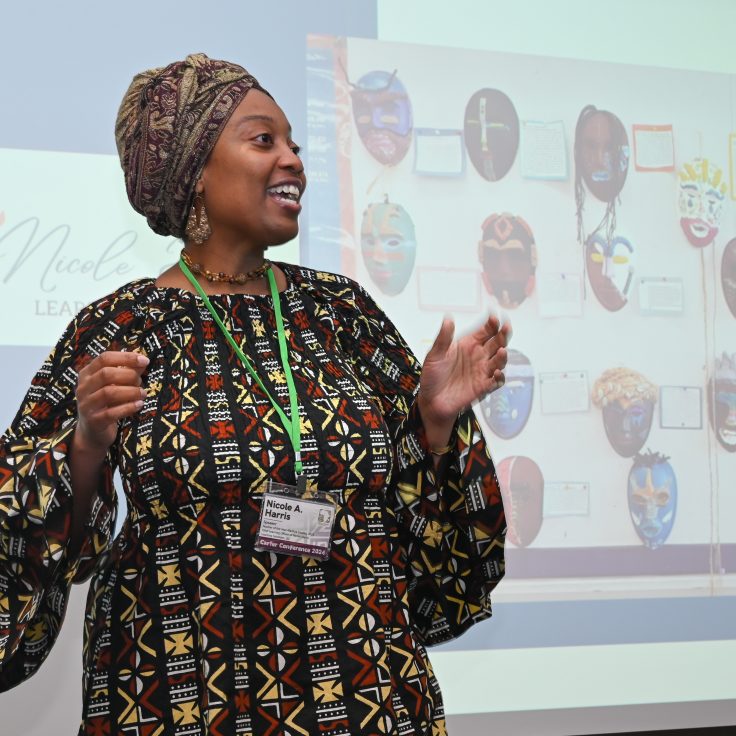
The Odd Couple of Economics
Award-winning professor has a productive partnership — and friendly rivalry — with TA-turned-colleague
At the college’s Evening of Excellence in April, then-acting economics chair THOMAS KNIGHT presented a faculty award to his friend and mentor MARK RUSH. Knight hasn’t heard the end of it since.
Rush, an economics professor who has racked up more than 30 teaching awards since coming to UF in 1982, passes up no opportunity bring up his colleague’s flattering remarks. “The college was incredibly generous to give me that award — and so foolish. Thomas knows what it’s done for my ego,” Rush said.
“I’m paying the real price here,” Knight, a lecturer at UF since 2014, replied.
Beneath their repartee is a steadfast working relationship that began when Knight served as Rush’s teaching assistant while a PhD student. Today, they’re united by a common cause: teaching introductory economics courses to classes that exceed 1,000 students, most of whom watch the lectures online. While they bounce ideas off each other, the two also compete to out-score each other on student evaluations. Adding yet another layer to their relationship, Knight was recently appointed to a full term as department chair, effectively making him Rush’s “boss.”
Their massive audiences have meant that the two are often recognized on campus. In a joint interview, Rush and Knight talked about engaging students in large online classes, their local fame and what motivates them as teachers.
How do you engage students in such large classes, with most of them watching online?
Thomas Knight: From a content perspective, I don’t think it’s any different. My goal is to replicate the small section, face-to-face environment the best I can — to deliver the same high-quality, rigorous course.
Mark Rush: I don’t treat it any differently, either. I’m always begging the students for questions. Sometimes I’ve got to buy a question with a quarter. Thomas will never let me submit that as an expense request.
TK: Everyone needs a reason to hate their boss, Mark.
My husband (Horticultural Sciences Lecturer Gerardo Nuñez) teaches a lot of online courses, and he goes out of his way to be very poised and professional. I take the opposite approach: I go out of my way to use silly and self-deprecating examples, to make students feel they can relate to the material.
MR: If you can make the courses more humorous, the students are more likely to watch the courses, and if they watch the courses, they’re going to be learning.
Does teaching about a third of all incoming freshmen give you any extra sense of responsibility?
TK: We really go out of our way to connect students at UF with resources beyond economics: the career center, study abroad, master’s programs and entrepreneurship. We can bring in visitors to give short presentations to a huge audience, and both of us take huge advantage of that.
MR: If you teach these big classes, there are thousands of people who know who you are. It means you have to behave in public.
For four or five years my classes were on Cox cable, and everyone knew who I was. I was once in Sam’s Club — at the time I was in my mid-40s — and a woman significantly older than I was came running up and started hugging me and telling me that I was her favorite show on TV. I did not know this was my target audience.
Thomas, you’ve called Mark a mentor. What have you learned from him?
TK: I’ll say this: If you told any new PhD on the job market that they would be expected to teach 2,500 students in a large introductory class, they would be praying to get another offer. But after being Mark’s head grader, it never crossed my mind that this would be a problem.
MR: We were fortunate to be able to hire Thomas for these large classes. Frankly, that’s rebounded to my harm because he and I have competed twice for teaching awards, and he’s won both.
What motivates you to go above and beyond when it comes to teaching?
MR: For me, it’s comparably easy to make the class good or bad. And if I make it good, it frees up more time, because the chair doesn’t come by and yell at me.
I think it’s intrinsic in one’s personality. You could say, “Thomas, be a bad teacher,” and it’d be very difficult for him. You’d probably have to pay him something to make him into a bad teacher.
TK: We also both view the students as humans, who are paying a lot of money to go to college. They’re making some sacrifices to be here. Delivering a low-quality education seems like a pretty crappy thing to do them.
Mark, what was your reaction to winning the faculty award at the Evening of Excellence?
MR: I was very surprised and gratified. At first, I was dismayed because Thomas was going to be accompanying me. But then I learned he had to say nice things about me.


